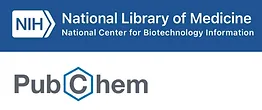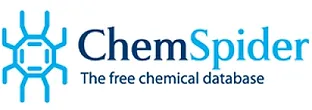AGGIORNAMENTO SCIENTIFICO IN TEMPO REALE FORNITO DA:

Top News
- Key Neurons for Maternal Bonding Identifiedby Neuroscience News on 25 Luglio 2024
A new study reveals that specific neurons in the brain's zona incerta (ZI) are crucial for early social interactions between infants and their mothers. These neurons, which express somatostatin, help build the maternal bond and reduce stress in infants. Interestingly, the same neurons increase anxiety and fear responses in adult mice. This discovery highlights the ZI's role in infant development and its potential adaptation over time.
- Cancer Drug Shows Promise for Autism Cognitive Functionby Neuroscience News on 25 Luglio 2024
A new experimental cancer drug could ease cognitive difficulties for those with Rett syndrome, a rare autism-linked disorder, by enhancing brain cell functions. The drug, ADH-503, improves the activity of microglia, which are crucial for maintaining neural networks.
- “Eureka Moments” Shed Light on Consciousnessby Neuroscience News on 25 Luglio 2024
A new study proposes a novel approach to studying consciousness through behavioral observations and learning curves. The study highlights that learning often occurs in sudden leaps, suggesting these "eureka moments" are preceded by conscious cognitive processes.
- Neural Vulnerabilities and Resilience in Alzheimer’s Exploredby Neuroscience News on 24 Luglio 2024
Researchers uncover how specific brain cells and circuits become vulnerable in Alzheimer's disease and identify factors that may promote resilience to cognitive decline. Analyzing gene expression in over 1.3 million cells across multiple brain regions, the study highlights the role of Reelin in neuron protection and choline metabolism in astrocytes for cognitive resilience. These findings pave the way for potential therapeutic targets to sustain cognition and memory amid Alzheimer’s pathology.
- Breathing Visualization Enhances Interoception and Mental Healthby Neuroscience News on 24 Luglio 2024
Visualizing breathing patterns can improve interoceptive awareness and mental well-being. Researchers used a spherical object on screens and spatial audio to mirror users’ breaths, significantly enhancing their bodily awareness and flow state. This immersive sensory experience highlights the connection between external stimuli and internal bodily signals, potentially aiding mental health.
- Anxiety Raises Dementia Riskby Neuroscience News on 24 Luglio 2024
A new study reveals that chronic and new anxiety are linked to a higher risk of dementia, while resolved anxiety shows no such association. Following 2,132 Australian individuals for 10 years, researchers found that chronic and new anxiety increased dementia risk by 2.8 and 3.2 times, respectively. Those whose anxiety began before age 70 faced even greater risks. The findings suggest that addressing anxiety could help prevent dementia.
- Alcohol Use Linked to Increased Bipolar Disorder Symptomsby Neuroscience News on 23 Luglio 2024
Research reveals that increased alcohol consumption in individuals with bipolar disorder can exacerbate their symptoms over time. Contrary to the belief that alcohol acts as self-medication, the study shows no increase in drinking due to heightened mood symptoms.
- Researchers Use Game of Thrones to Study Face Blindnessby Neuroscience News on 23 Luglio 2024
Researchers used Game of Thrones to study how the brain recognizes faces, providing insights into prosopagnosia, a condition affecting facial recognition in 1 in 50 people. MRI scans showed increased brain activity in regions associated with character knowledge in fans of the series, but reduced activity in those unfamiliar with the show and in prosopagnosia patients.
- Brain Coupling May Predict Psychosisby Neuroscience News on 22 Luglio 2024
Individuals with the 22q11.2DS genetic deletion show unique patterns of brain activity and structure, which could predict their risk of psychosis. By studying brain "coupling" from childhood to adulthood, scientists discovered discrepancies in brain regions linked to schizophrenia.
- Neuropeptides, Not Neurotransmitters, Drive Brain’s Fear Responseby Neuroscience News on 22 Luglio 2024
Researchers have discovered that neuropeptides, not neurotransmitters, are the primary messengers in the brain's fear circuit. This finding could lead to better painkillers and treatments for fear-related conditions. Using innovative tools, scientists observed neuropeptide release during fear responses in live mice. The study highlights the potential of targeting multiple neuropeptides for more effective therapies.
- Chimps Use Gestures, Like Humans, to Communicateby Neuroscience News on 22 Luglio 2024
Researchers have found that chimpanzees communicate with gestures in a rapid turn-taking pattern similar to human conversation. Studying over 8,500 gestures across five wild communities, they discovered that chimpanzees exchange gestures with pauses averaging 120 milliseconds.
- Daily Naps and Brain Training Reduce Dementia Riskby Neuroscience News on 22 Luglio 2024
Exercising our brains with daily habits like naps and memory workouts, instead of relying on smartphones, can reduce the risk of age-related dementia. A new study highlights the superiority of human intelligence over AI. The study emphasizes nurturing our brain's potential for healthy aging. It also offers practical tips for boosting brain power and maintaining real intelligence.

















